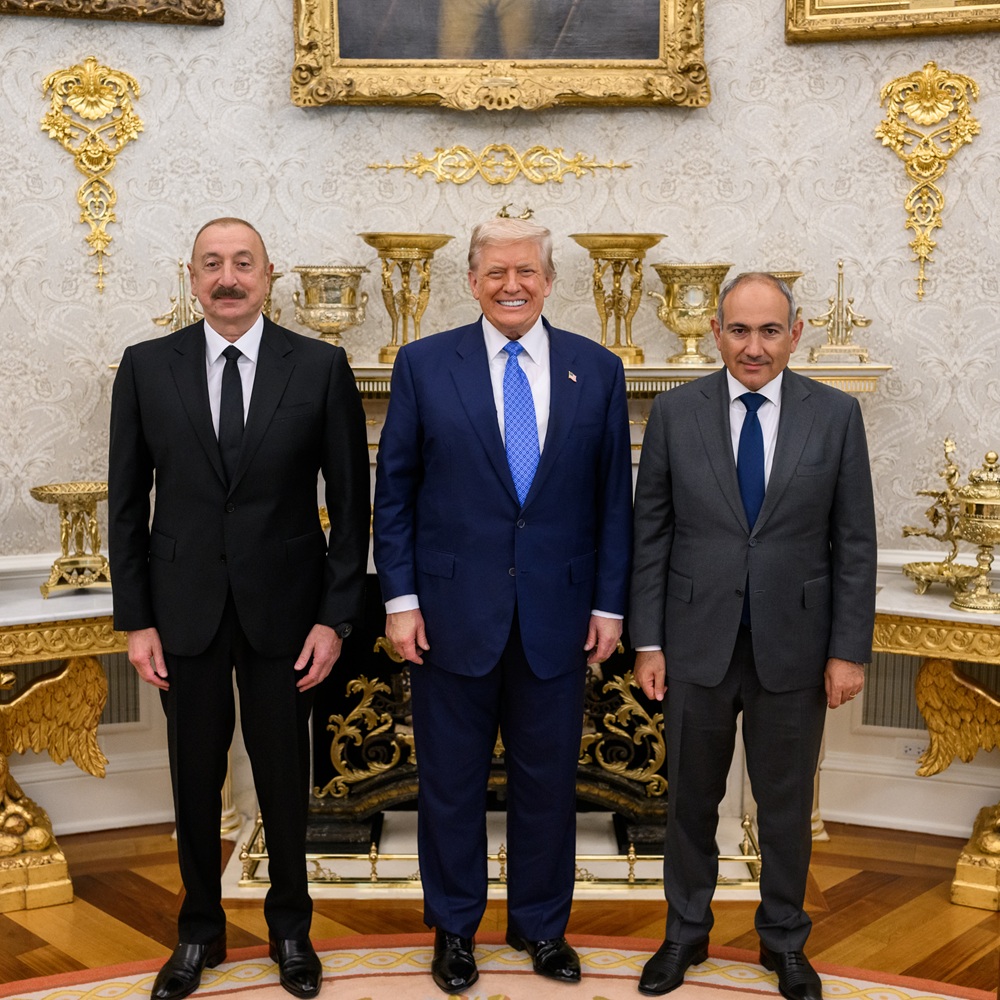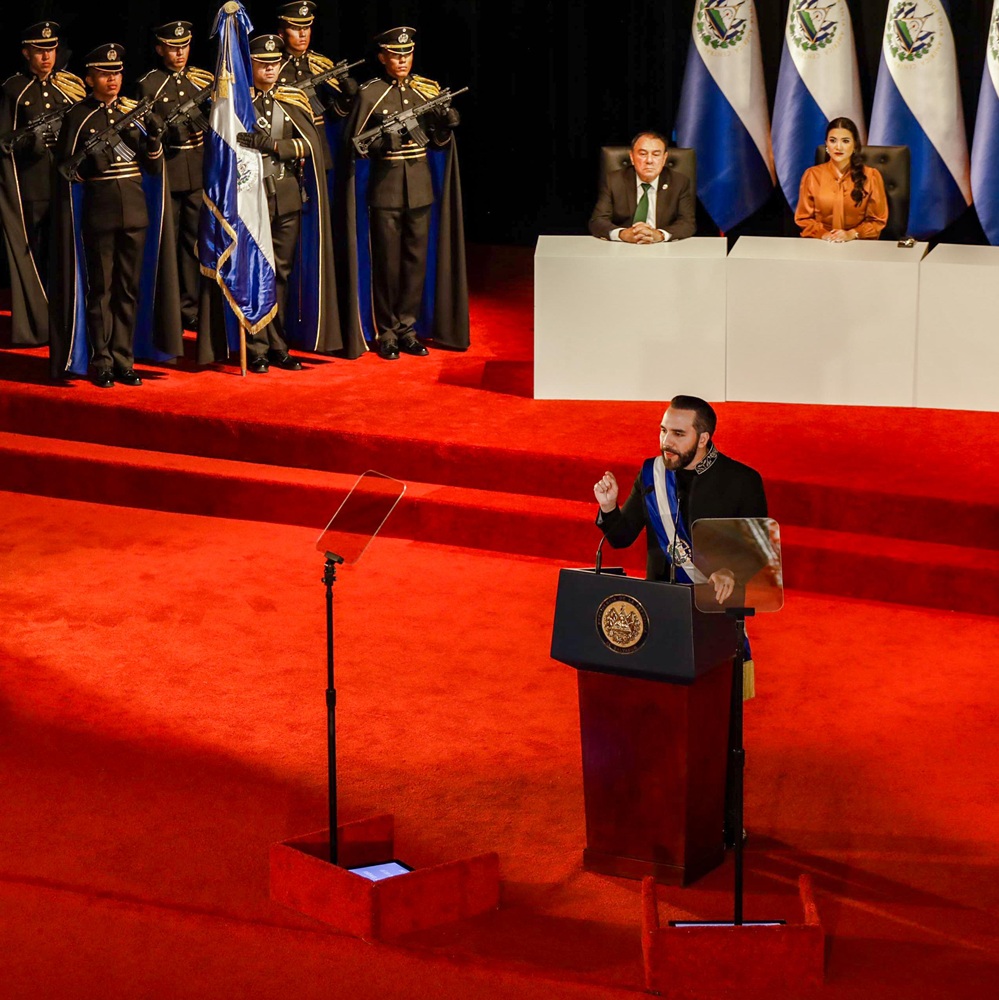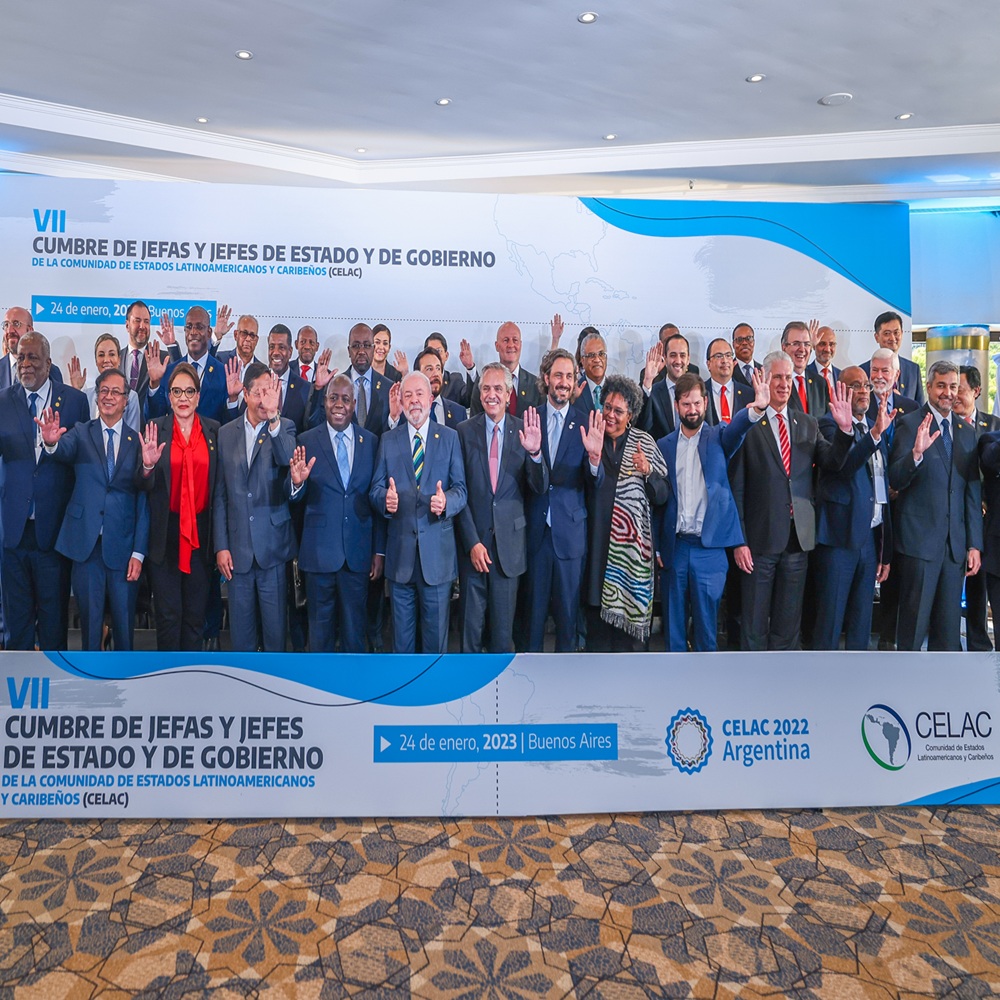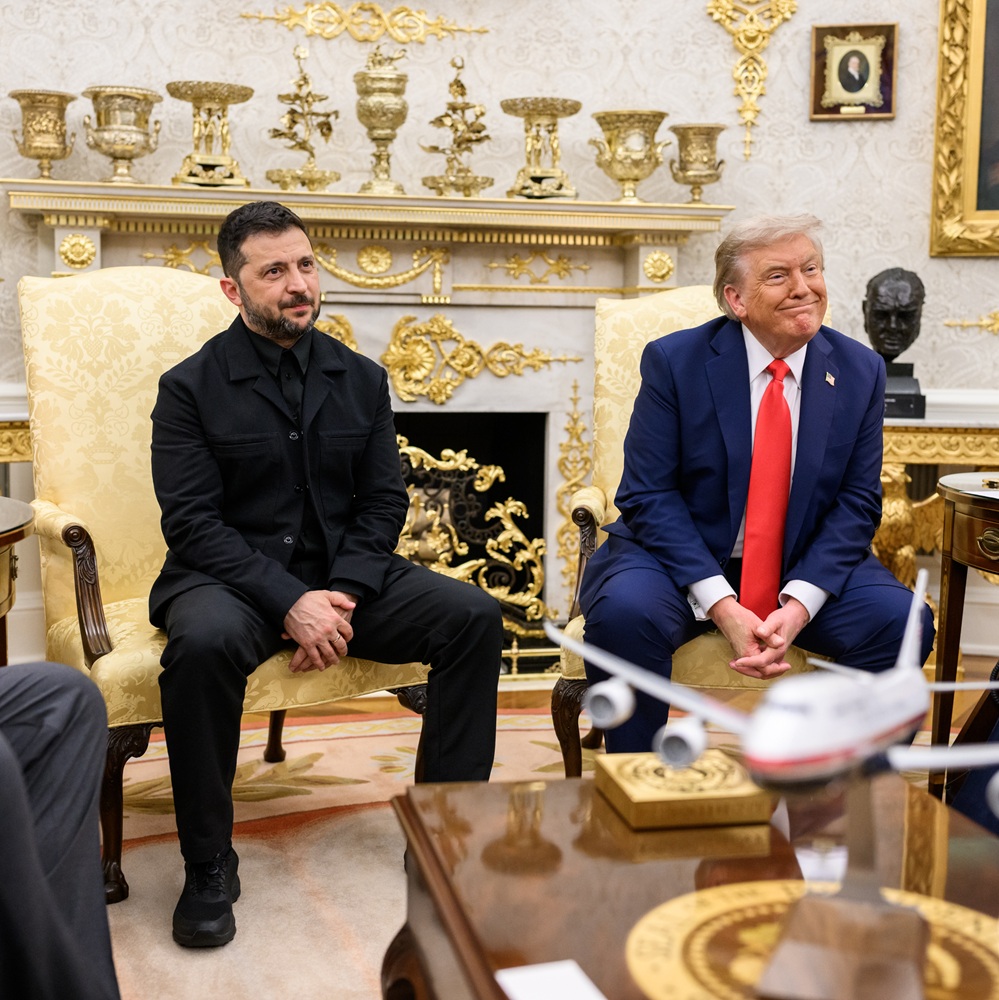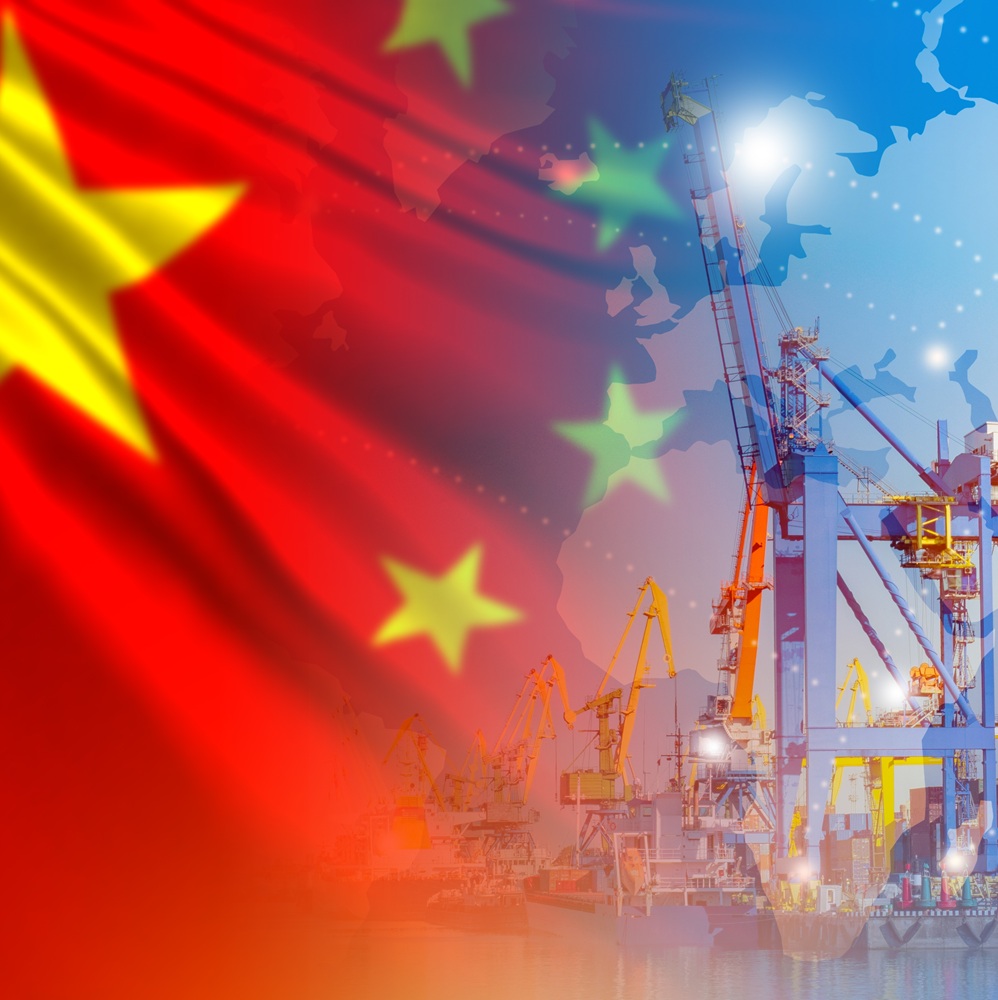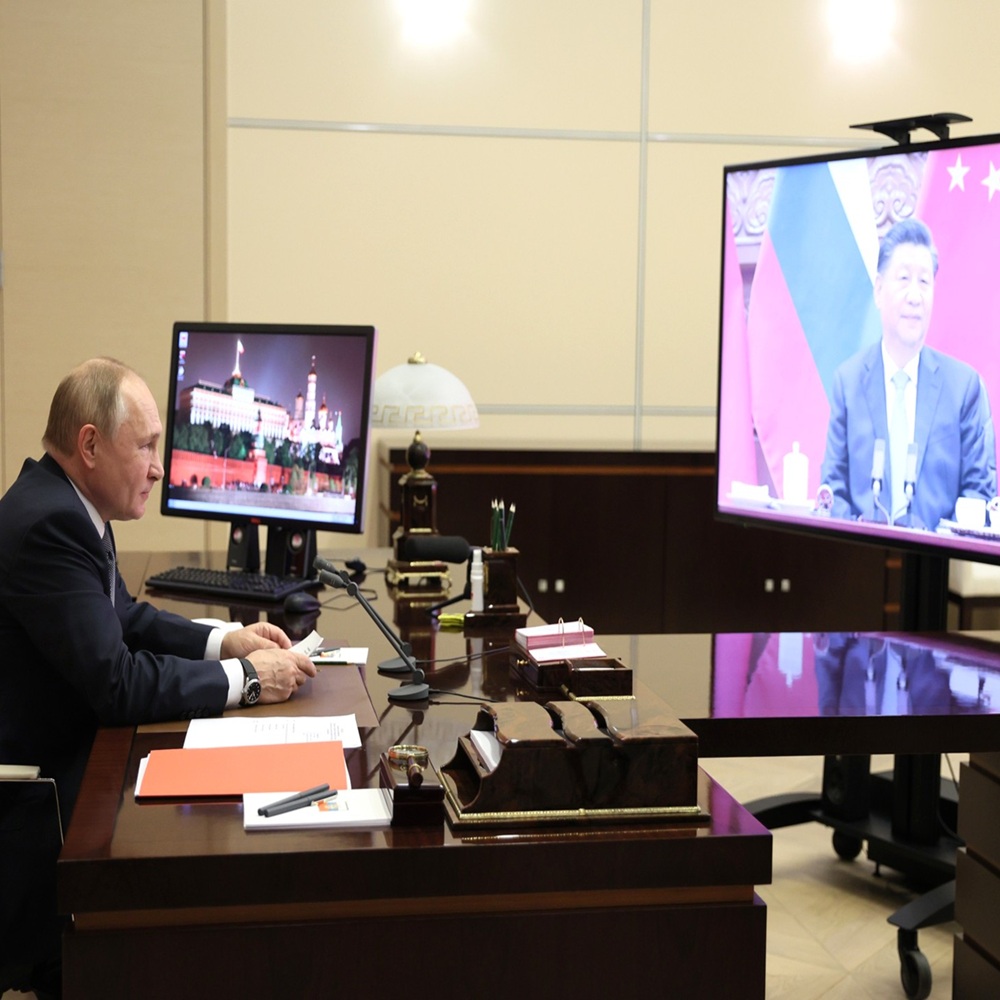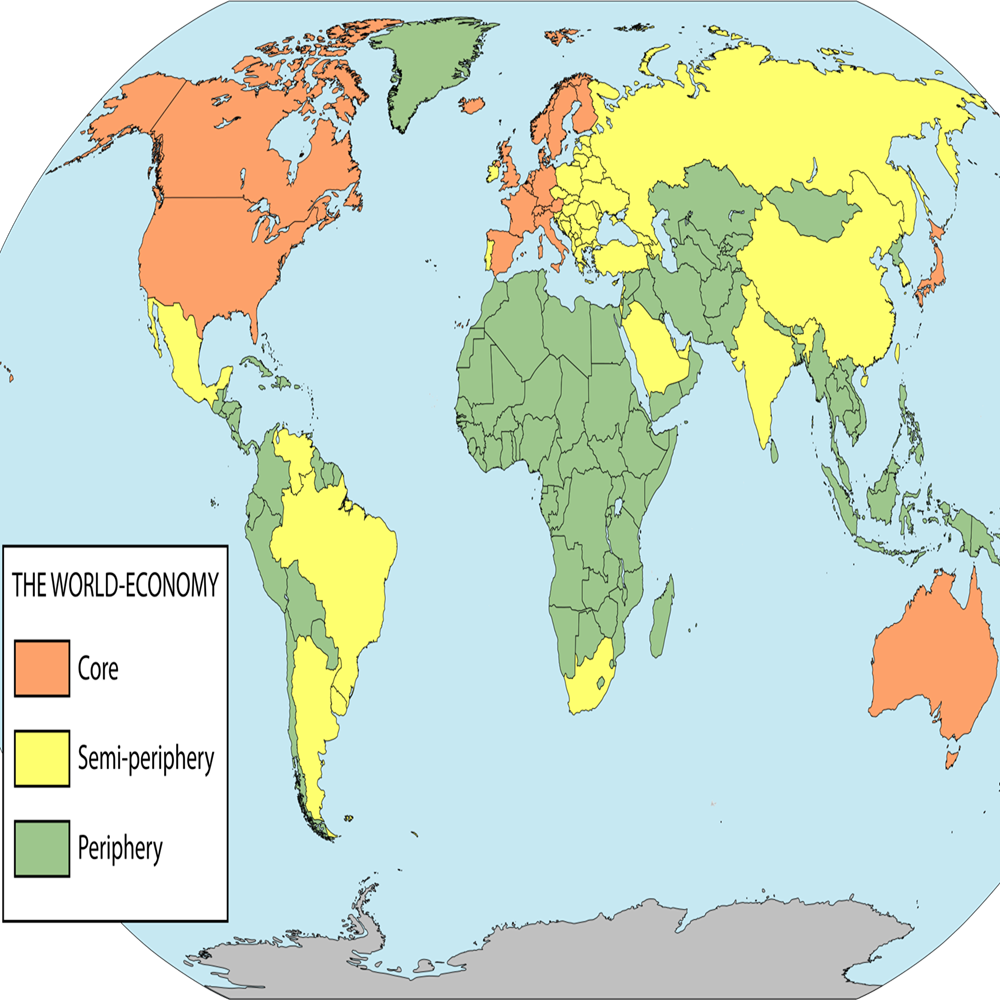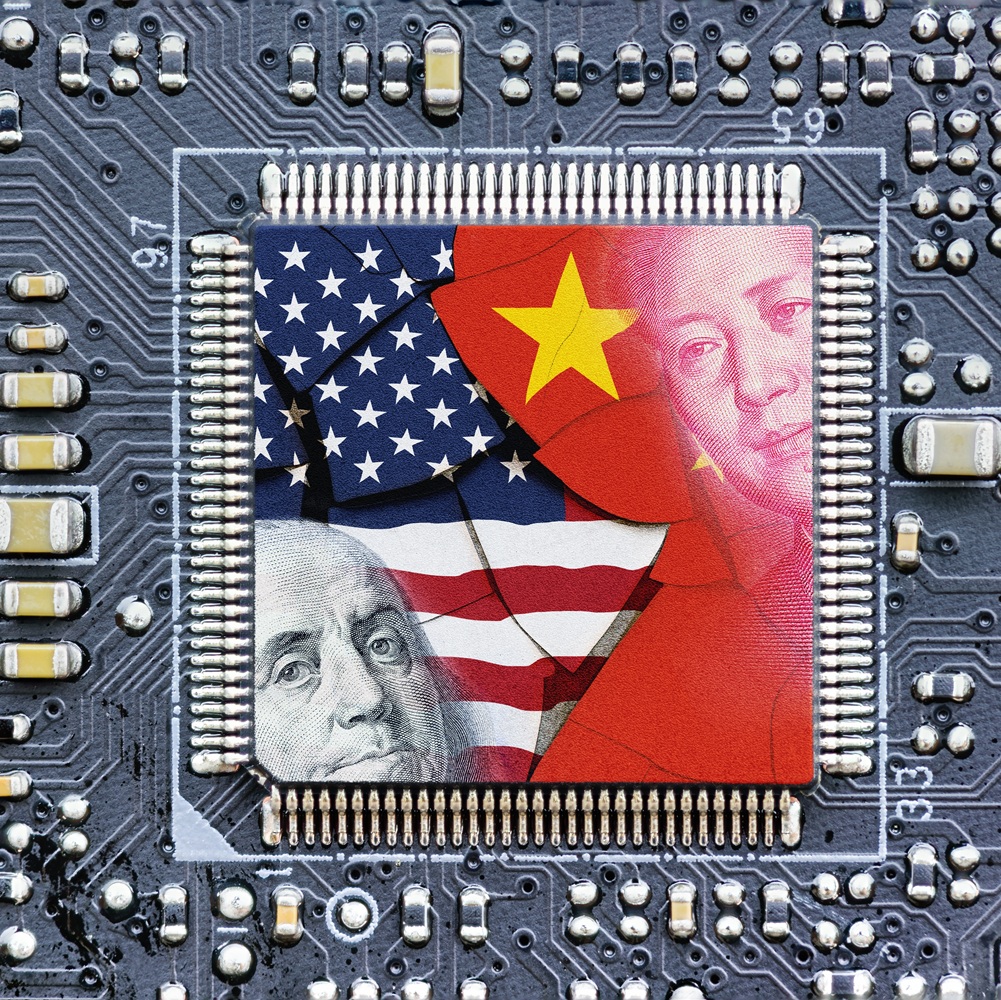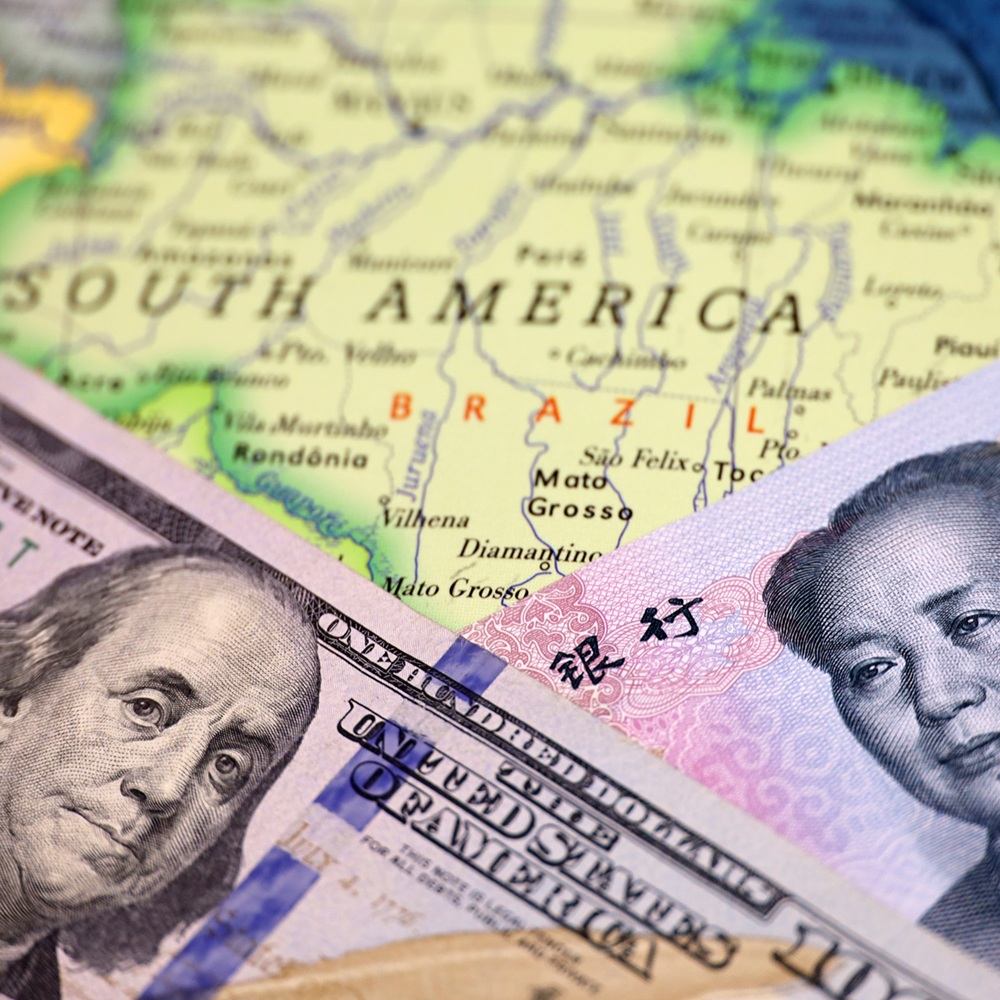Russia’s Turn to the East and Sino-Russian Relations
by Zhao Huasheng
Where is the "East" for Russia? This is the central question of the "pivot to the East" policy. Throughout Russian history, the debate over East and West has never ceased, embodied most clearly in the opposition between Slavophiles and Westernizers. Their discussion unfolded mainly within the framework of the "East–West" problem. However, it would likely be incorrect to view their debate through the lens of today’s understanding of East and West. The "East", as understood by the Slavophiles, was not Asia in the usual sense of the word—neither geographically nor culturally. The Slavophiles called for a "return to Asia," but by "Asia" they meant Slavic civilization in contrast to Europe, in other words, Russia itself—not the East Asian Confucian civilization led by China. They argued that Russia’s traditions and history were distinct from those of Europe and self-sufficient, and that Russia should follow its own path—one that is Slavic, not Asian. Moreover, the Slavophiles did not consider Russia part of Asian civilization. The views of Slavophiles and Westernizers on whether Russia belongs to Europe are diametrically opposed, but on the question of whether Russia belongs to Asia, their opinions coincide: neither considered Russia to be part of Asian civilization. Thus, the subject of their debate does not lie in choosing between Europe and Asia, but in choosing between Europe and Russia. In the context of their dispute, the "East" refers to the Asian part of Russia and Russia itself. Russian Eurasianism emerged in the 1920s and, according to its ideas, Russia has both European and Asian features but is neither Europe nor Asia. Instead, it represents a “closed and complete geographic, economic, and ethnic whole” [1]. In other words, from the point of view of Eurasianist philosophy, Russia was seen as a unique civilization — a notion that echoes Slavophile thinking. After the collapse of the USSR, neo-Eurasianism appeared in Russia, which includes various strands. Unlike classical Eurasianism, neo-Eurasianism goes beyond theoretical discussion and has a practical orientation. When the former Soviet republics began gaining independence, neo-Eurasianism also started to carry certain political and geopolitical meanings. The idea of Eurasia’s self-sufficiency was inherited from classical Eurasianism. Thus, neither Slavophilism, nor Westernism, nor Eurasianism actually turns to Asia. Westernism is by nature outward-looking and advocates integration with Europe. Slavophilism and Eurasianism are inward-oriented, calling for a return to one's roots. How, then, did the turn to the East happen if none of these major currents focused on Asia? Does this not present a contradiction? In fact, there is no contradiction. The essence of the debate among Russian intellectual traditions concerns the characteristics of Russian civilization and its development path, while the pivot to the East relates primarily to foreign relations and external policy. In the first case, it is about the spiritual East and West — or the civilizational and cultural East and West. In the second, it is about the East and West in terms of international relations, where specific countries and regions matter more than the civilizations they belong to. There is no conflict between these two planes: the first one emphasizes the civilizational position of the country, while the second concerns the direction of its foreign policy. Civilizational position and diplomatic position are not the same. The civilizational position of a country reflects its value system and spiritual orientation. The diplomatic position reflects key aspects of its foreign policy at a given moment. The civilizational aspect influences foreign policy, but it does not determine a permanent shift in foreign policy priorities. A country’s official foreign policy is shaped not only by its civilizational identity, but also by its actual political, economic, and security interests. The last factor usually plays a decisive role in a complex international environment. The civilizational position is also not necessarily closely tied to interstate relations. Although Russia belongs to European civilization, this does not mean that its relations with Western countries will necessarily be better or worse than with non-Western ones. In practice, many of Russia’s friendly relations are with non-Western countries, while it has very few friends among Western states. The historical context of Russia’s pivot to the East. Russia’s modern pivot to the East is not the first in the country’s history. It should be noted that throughout the history of Russian foreign policy, the meaning of the term “East” has changed from one era to another. As a rule, the East was understood to mean Asia — geographically separate from Europe and culturally different from it. However, in different contexts, the meaning of “East” varies significantly. Typically, the East refers to the Asian region surrounding Russia — not only geographically to the east of the country (such as China and East Asia), but also in a broader sense. Culturally, the East was perceived as a non-Christian region: the Ottoman Empire, the Caucasus, the Qing Empire, and the Central Asian khanates — all of these were outside the Christian cultural sphere. The Russian language includes a popular expression: “The East is a delicate matter.” This phrase comes from the main character of the Soviet film White Sun of the Desert, Red Army soldier Fyodor Sukhov. His line became a well-known saying used to describe the East. In this context, “the East” refers to Central Asia, which apparently was part of the “East” in the Russian mindset of the 1920s (i.e., the time in which the film is set). However, Central Asia is not part of the current concept of the “pivot to the East.” It is often said that Russia has turned to the East many times, but there is no consensus on when this first occurred. Even during the imperial period, the East was an important direction in Russian foreign policy — the Ottoman Empire and the Caucasus were an inseparable part of this eastern vector [2]. After the 16th century, Russia continued to focus on the East by developing relations with the Ottoman Empire, the Chinese Qing Empire, the Central Asian khanates, and others. Emperor Peter I not only “opened a window to Europe,” but also paid significant attention to the East. In 1716, he ordered a military expedition to Khiva and Bukhara, although it ended unsuccessfully [3]. From the late 17th century onward, ten Russo-Turkish wars were fought over more than 200 years. And although the Ottoman Empire was considered part of the East, the regions where the wars were fought — the Caucasus, Lower Volga, Crimea, Western Ukraine, Moldova, Bessarabia, Istanbul, and the Balkans — are today typically viewed as part of the West. These warm, fertile regions close to Europe cannot be called the East in the true sense of the word. Indeed, this was a major shift in Russian foreign policy, but it was not a pivot to the East — it was more accurately a pivot from the North to the South. Since the Middle Ages, the Grand Duchy of Moscow had exported furs and timber through the Baltic Sea in the north. However, this alone was not enough, and Russia came to understand that in order to become a powerful state, it needed to look southward and gain access to the Black Sea. The development of this southern foreign policy reached its peak during the reign of Catherine II (1762–1796) and continued up until the start of the Crimean War (1853–1856) [4]. Some researchers believe that Russia’s first true pivot to the East began in the late 19th century and was closely associated with the name of Count Sergei Witte. During the reigns of Emperors Alexander III (1881–1894) and Nicholas II (1894–1917), Witte held several high-ranking positions in government: Minister of Transport, Minister of Finance, Chairman of the Council of Ministers, and Chairman of the Committee of Ministers. Thanks to Witte’s efforts, the pivot to the East was formalized as an economic, trade-investment, and transport-logistics strategy. He supported the idea of building the Trans-Siberian Railway; under him, the construction of the Chinese Eastern Railway — stretching from northeastern China to Vladivostok — was planned and completed; and the Russo-Chinese Bank was created in connection with this project. Although Witte’s plans were not fully realized, he was the first to propose a clear eastern strategy. Some scholars argue that until the late 19th century, Russia did not have a clearly formulated strategy toward Asia. Many significant Russian actions in Central Asia and the Far East were not directed from the top but were undertaken independently on the ground. When these expansionist actions succeeded, the imperial government not only acknowledged them but also accepted their outcomes. For example, under the Treaty of Nerchinsk (1689) between Russia and China, the Amur River basin (Heilongjiang in Chinese) belonged to China. Even before the Crimean War, Russian troops were already present in that territory, taking control of settlements and establishing outposts. Although the imperial authorities understood that this violated the bilateral treaty and encroached on Chinese territory, Emperor Nicholas I (1825–1855) famously declared: “A Russian flag once raised must never be lowered.” [5] There is also an opinion that Russia’s first pivot to the East took place in the early years of the Soviet Union and was reflected in the foreign policy of People’s Commissar for Foreign Affairs Georgy Chicherin. The author is convinced that the first pivot of Russia to the East — in the modern sense of the term — occurred after the end of the Crimean War and continued until the Russo-Japanese War (1904–1905). The eastern strategy proposed by Sergei Witte emerged precisely during this period [6]. The main content of this first pivot to the East was territorial expansion and colonization of the East, while economic interests played a secondary role. Central Asia, the Far East, and the Caucasus were the primary directions. As a result, Russia took control of the Caucasus in the west, conquered all of Central Asia in the south, and expanded its influence eastward to the Pacific coast. Russia had already been present in Central Asia in the early 18th century, and by the time of the Crimean War had penetrated deeper into the region — for example, the Vernoye Fortress was built by Russian troops in 1854–1855, which became the foundation for the city of Verny (modern-day Almaty). After the Crimean War, in order to be able to deter a potential war with Britain in Central Asia, a strategy of southward advancement was adopted. This strategy involved the incorporation of parts of Central Asia, the conquest of Turkestan and the Central Asian steppes, and approaching the borders of Afghanistan. The development of this strategy was assigned by the emperor to Colonel N.P. Ignatiev [7]. During Russia’s advance in Central Asia, expansion and colonization became an end in themselves, while the goal of containing Britain faded into the background. From 1858, under the command of General M.G. Cherniaev — whom the press dubbed the "Yermak of the 19th century" — Turkestan was annexed, and the cities of Chimkent, Semipalatinsk, Tashkent, and others were captured. In 1867, the Turkestan Governor-Generalship was established, led by K.P. Kaufman, who had previously served as the Vilna Governor-General. In the following years, the Bukhara Emirate, the Khanates of Khiva and Kokand came under Kaufman’s control. At that point, the Russian conquests and colonization of Central Asia were effectively completed. China became the most important direction of this wave of the "pivot to the East." Several years after the Crimean War, taking advantage of the situation in which Beijing was occupied by British and French troops and internal unrest was growing, Russia forced the Qing government to sign a series of treaties. As a result, China lost over 1.5 million square kilometers of land in the northeast and northwest of the country. The person responsible for this was the Russian Empire’s envoy to China, N.P. Ignatiev. Russia’s advance eastward did not stop there. It crossed the Amur River, moved into northeast China, and attempted to annex all of Manchuria by realizing the idea of “Yellow Russia” [8] — turning this territory into a second Bukhara [9]. This idea ultimately failed, mainly because the great powers entered into disputes and conflicts over dividing spheres of influence in China. In 1896, the Russian Empire and the Qing government signed an alliance treaty (the Aigun Treaty), which included a clause on joint military actions against Japan if it attacked either side or Korea. The treaty also granted Russia the right to build a railway through northeastern Chinese territory — nominally for troop transport in wartime — but in reality it became a tool for implementing the idea of Yellow Russia. In 1897, Germany occupied the port of Qingdao. The Qing government turned to Russia for help. The Russian Empire refused, citing its obligation to help only in case of a Japanese attack, and instead used the opportunity to force the Qing to cede Port Arthur (Lüshun). In 1900, Russia joined the Eight-Nation Alliance and deployed troops in China, which was essentially an act of war. Russia occupied all of northeastern China, and in the 64 villages of Jiangdong, it carried out “numerous cleansings” of the Chinese population. The Russo-Japanese War broke out in 1904–1905 due to the rivalry between Russia and Japan over Manchuria and Korea. The main theater of military operations was northeastern China. After the war, Russia supported the independence of Outer Mongolia, as a result of which China lost control over this territory. It is evident that Russia and China view the history of their bilateral relations — and its key figures — in very different, even opposite ways. In the historical consciousness of the Chinese people, Russo-Chinese relations of that period are seen as part of the "century of humiliation," which brought suffering to China and left deep wounds in the hearts of the Chinese people. The complex history of Russian-Chinese relations includes both dark pages and times of friendship and mutual assistance — particularly the Soviet Union’s military support during the war against Japan (1938–1945) and the large-scale assistance provided after the founding of the PRC (1949). These pages, too, have a lasting place in China’s historical memory. In the nearly half-century that passed since Russia’s first pivot to the East, its expansion in this direction reached its peak, resulting in vast territorial gains and reaching the natural limits of expansion in the Far East and Central Asia. This process culminated in the formation of the eastern borders of the Russian Empire, which remained in place until the dissolution of the USSR in 1991. Modern Pivot to the East Russia's turn to the East now has different content and character. It is often linked to the Ukrainian crisis that broke out in 2014 and the conflict with the West. There is some truth in this, but not completely. The shift was driven by a set of factors: first, the shift of the global political and economic center to the Asia-Pacific region; second, Russia’s need to develop Siberia and the Far East; third, the influence of the international situation. In the early 21st century, the Asia-Pacific became home to many economic powers with growing political and economic influence. This attracted Russia’s attention and pushed it to develop closer ties with Asia-Pacific countries, strengthening its position in the region. This reason has been stated repeatedly by Russian President Vladimir Putin. The development of Siberia and the Far East is a key part of the “turn to the East” policy. All measures in this direction aim at this goal. In 2012, when Putin presented the strategy of turning East, he outlined the goal of developing Siberia and the Far East. These regions are rich in natural resources, which have been sought after since the days of tsarist Russia. This is important not only for the regions themselves but for the entire Russian state. Russia sees the potential of these regions and believes they will be a source of wealth and drive the country's prosperity in the 21st century. In this regard, Vladimir Putin set a priority for the entire 21st century — the development of the Far East. At the IX Eastern Economic Forum in September 2024, he again stressed the importance of developing Siberia and the Far East, saying the future of Russia largely depends on it. There is a gap in development between the western and eastern parts of Russia. A visible socio-economic divide causes problems for both the economy and national security. Siberia and the Far East are vast and rich in resources, but sparsely populated and economically underdeveloped, with outdated infrastructure and population decline. These regions border China, Japan, and South Korea — economically stronger, densely populated countries with high demand for resources. Russia believes that if it does not develop Siberia and the Far East, the economic and social gap between its western and eastern parts will grow, and the population in the eastern regions will shrink. These trends could later deepen regional imbalances and reduce the appeal of these territories for residents, weakening the influence of the political center and risking a loss of control. The Ukrainian crisis played a significant role in Russia’s geopolitical and territorial reorientation. All past turns to the East happened after setbacks in the European direction. The turn in the second half of the 19th century came after the defeat in the Crimean War, and early Soviet eastern development also began due to difficult relations with the West. In such cases, as European powers moved East, Russia, losing chances in the West, turned to the weaker East, which it could dominate more easily. This helped it look away from Europe’s pressure and gain in the East to offset losses in the West. The Ukrainian crisis became the most serious conflict between Russia and the West since the Cold War’s end. It changed their relations fundamentally. The West imposed strict and broad sanctions on Russia after the start of the conflict, cutting almost all political, economic, financial, technological, transport, cultural, sports, educational, and humanitarian ties — something that never happened before in Russia-Europe relations. Even during the Crimean War, Europe did not fully cut economic ties with Russia; trade continued through neutral countries. Now, a wall separates Russia from the West, dividing Europe in two, with almost all European countries on the other side. The shadow of war now looms between Russia and the West. Russia began focusing on the East to break the Western political blockade and replace lost markets and resources in Europe. But this only sped up the turn to the East; it did not cause it, since the policy began before the Ukrainian crisis. The turn to the East has been developed both as a scientific concept and a political strategy in academic circles for a long time. One viewpoint holds that the initiator of this idea was Yevgeny Primakov: in 1996, while serving as Minister of Foreign Affairs, he proposed a corresponding concept. In 2012, the Valdai International Discussion Club published an analytical report titled “Toward the Great Ocean, or the New Globalization of Russia,” which promoted the idea of Russia’s development in the direction of the Asia-Pacific region. The authors of this study — Professor S.A. Karaganov and T.V. Bordachev — are among the most active supporters of the turn to the East and later published a series of reports and articles on the topic to shape public opinion accordingly. Professor A.V. Lukin, a leading Russian expert on China, also published a work on the subject of the turn to the East back in 2014. Many other Russian researchers have written a large number of articles addressing this issue. The state policy of the “turn to the East” was proposed later than the concept itself but also before the start of the Ukrainian crisis. The idea of turning East emerged during the presidency of Dmitry Medvedev (2008–2012). In his 2010 address to the Federal Assembly, he stated that Russia faced the task of regional integration into the Asia-Pacific economic space and that expanding ties with countries in the region was taking on strategic importance. After Vladimir Putin returned to the presidency in 2012, the “turn to the East” strategy took its final form. As already noted, this direction began to be developed in 2012, and in his 2013 address to the Federal Assembly, President Putin used the phrase “Russia’s pivot to the Pacific Ocean,” which essentially means the same as the turn to the East. At different times, the term “turn to the East” has had different meanings in terms of goals and direction. Even within the same period, its content changed and was supplemented depending on circumstances. In Russian foreign policy, the turn to the East was initially seen as a supplement to the Eurocentric direction. Its main function was to reduce dependence on Europe without changing the structure of Eurocentric foreign policy. Until Medvedev’s presidency, this was the ideological content of the turn. Later, the eastern vector in Russia’s foreign policy became as important as the European one, aiming for symmetrical development. After 2012, the balance between the eastern and western directions became the central idea of the turn to the East. With the start of the Russia–Ukraine conflict in 2022, the ideological meaning of the turn was adjusted again. As the road to the West was blocked, the turn to the East (including to the Global South) became the only option. In this context, it started to represent the center of gravity and support for Russia’s foreign policy. The turn to the East no longer just balanced the European and Asian directions — it became the main direction of foreign policy, with Europe becoming secondary, at least for the time being. However, in Russian academic circles, there are also more absolutist views on this matter. Some believe that with the beginning of the Russia–Ukraine conflict, the 300-year journey of Russia through Europe, which began with Peter the Great, came to an end. The “window to Europe” closed for a long time, and Russia “returned home” — to the East. This conclusion was drawn a century and a half ago by the great writer Fyodor Dostoevsky: back in the 19th century, he argued that Russia had completed its historical path in Europe and should go its own way. But let us remember that in the early post-Soviet years, Westernism was extremely popular, and Russia rushed into the embrace of the West without hesitation (here the author understands “Westernism” more as admiration for the West). After the September 11 attacks, Russian-American relations quickly warmed, and optimistic forecasts were voiced: Russian society had chosen its path — the European one, and the easing of relations with the U.S. drove “the last nail into the coffin” of Eurasian values. Clearly, that scenario did not work out. Time will tell whether predictions about a final separation between Russia and Europe will come true. However, considering historical events, it seems unlikely. In 1697–1698, Peter the Great organized the Grand Embassy — a diplomatic mission to Europe, and after Russia’s victory in the Great Northern War (1700–1721), the country became a great power and from then on actively participated in European affairs, sometimes as a partner of European states, sometimes as an adversary, but always inseparable from Europe. The current confrontation with Europe is a result of the Russia–Ukraine conflict and sanctions. It is not expected to become the norm in Russia’s foreign policy, as it does not align with the patterns of international politics and economics. The present situation is caused by a political conflict, not by a loss of Europe’s importance to Russia. Europe still matters to Moscow in political, economic, and security terms. Russia and Europe remain connected by geography, culture, and religion. President Vladimir Putin has stated that Russia is still part of European civilization, and Europe is an important player — cutting ties with it would be politically unwise, economically undesirable, and impossible from a security standpoint. Russia–Europe relations may go through different phases, but Russia is a European country and cannot ignore Europe or abandon the development of its European direction. If given the opportunity, it will return to it. Russian scholars argue that both Europe and Asia are key directions in the country’s foreign policy. Russia has always approached both regions based on the need for a multi-vector foreign policy and diversified economic cooperation with its external partners. It is possible to predict that the end of the Russia–Ukraine conflict and the lifting of Western sanctions will be followed by a gradual normalization of relations. After that, business ties between Russia and Europe will slowly begin to recover, although this process may take a long time, and relations may not return to their pre-conflict state. As history shows, when Russia goes too far in one direction — West or East — it eventually turns the other way. The success or failure of the turn to the East can only be judged by the goals it sets for itself. It is no longer just a foreign policy and economic concept, but a comprehensive national development strategy. Therefore, its success should be assessed accordingly. Three key criteria can be identified: socio-economic development of the Far East and Siberia; the degree of Russia's integration into the Asia-Pacific economy; and the strengthening of Russia's discursive power in the Asia-Pacific. Progress in all three areas will indicate success, while setbacks will suggest stagnation or regression. These indicators must be evaluated based on long-term data — short-term results show only temporary trends and are not sufficient to judge the overall effectiveness of the strategy. The turn to the East is a long process, inevitably accompanied by difficulties and setbacks. Russian history shows that each shift in foreign policy direction has taken decades and gone through many ups and downs, sometimes even failures. Yet Russia has always stood up again, showing resilience in pursuing long-term goals. In today’s world, development happens at a faster pace. The completion of the turn to the East cannot wait another hundred years, but structural transformation will still take at least ten years, and success is not guaranteed. Much has been achieved over the past decade, but many challenges remain — most of them within Russia itself. Understanding the East holds intangible but important meaning. In the minds of Russians, especially Westernizers, the East and West are opposites. The West symbolizes civilization and progress, while Asia is seen as barbaric and backward. The word “Aziatchina” in Russian carries negative connotations linked to cultural backwardness, roughness, and lack of civility. Europe, by contrast, is viewed positively — for example, by Vissarion Belinsky: “Everything great, noble, human, and spiritual has risen, grown, flourished, and borne luxurious fruit on European soil.” This perception still exists to some extent and traditionally forms a cultural bias in Russia, especially against modern Asia. Because of this cultural barrier, Russia cannot fully become either a European or an Asian country. To truly become part of Asia, Russia must entirely and objectively rethink its understanding of it. The efficiency of Russian government agencies is extremely important, and that of local governments is even more so. Government institutions at all levels are key to implementing the turn to the East strategy. The enthusiasm and effectiveness of local officials play a large role in determining the success of the strategy. Bureaucratic red tape and apathy can ruin even the most promising programs, while weak governance and corruption can destroy any successful policy. Finding a rational and effective model for the development of Siberia and the Far East is a difficult task. The situation in these regions is unique. Chinese, Japanese, and Korean models do not suit Russian conditions. The global economy is currently undergoing changes, and Russia needs to adapt, take advantage of its strengths, and form its own development path. The internal turn to the East requires innovative development. The task is not simple — to ensure the prosperity of Siberia and the Far East while considering their rich natural resources, underdeveloped infrastructure, labor shortages, limited markets, and small-scale processing and scientific industries. Significant efforts are needed for Vladivostok — the capital of the Far Eastern Federal District — to stand out among Tokyo, Shanghai, Hong Kong, and other regional and global financial, tech, innovation, and logistics hubs. Excluding the energy and defense sectors, Russia will find it difficult to carve out a niche in the Asia-Pacific market, which already has a stable structure, well-defined labor division, and strong competition. Russia will need to demonstrate extraordinary competitiveness to enter the Asia-Pacific market successfully. Attracting foreign investment is an important tool for the development of Siberia and the Far East. However, its application requires greater openness to the outside world, a favorable investment climate, reliable legal guarantees, appropriate political measures, rational tax policy, efficient customs procedures, pragmatic labor policy, and a mentality that views foreign capital positively. State policy must be consistent and coordinated, and there must also be an increase in the awareness of the business community [population — translator's note] about market-based rules of economic cooperation. The Ukrainian crisis contributed to the turn to the East, but at the same time brought unforeseen challenges to its implementation. As a result of tough political and economic Western sanctions, foreign investment opportunities have been greatly reduced. Not only were Western investment channels blocked, but investment from other countries has also become severely limited. Scientific and technological cooperation with many countries cannot proceed due to the threat of Western sanctions. Bilateral trade also faces restrictions, and there are serious difficulties and problems with financial settlements. Changes in the global geopolitical and geoeconomic landscape after the start of the Russia–Ukraine conflict have affected the original concept of the “turn to the East.” First, the Ukrainian crisis narrowed the geographical scope of this process. Major Asian economic and technological powers — Japan and South Korea — played an important role in the turn to the East, but they imposed sanctions on Russia following the United States, and trade cooperation was suspended. As a result, Japan and South Korea are no longer considered part of the turn to the East, which has created challenges for the strategy. Second, the scale of some important projects associated with the turn had to be reduced. For example, the development of the Northern Sea Route. The Northern Sea Route is a key project in the context of the turn to the East: it is a transport artery connecting East Asia and Europe. It is much shorter than the sea route from East Asia to Europe via the Indian Ocean (Suez Canal), which allows for significantly lower shipping costs and shorter delivery times. With the acceleration of global warming, the navigational period — when the Arctic Ocean can be traveled without an icebreaker — is expected to increase. Completion of transport infrastructure along the Northern Sea Route would change the system of international shipping, bringing economic benefits to Russia and raising its geopolitical and geoeconomic significance. However, after the start of the Russia–Ukraine conflict, European sanctions against Russia blocked transport routes to Europe, putting the functioning of this corridor in question. Now, transportation operates only to Murmansk, which supports Russian-Chinese trade but causes difficulties on the European side. In addition, sanctions impact the construction of infrastructure and icebreaking ships. Despite this, in the long term, the value of the Northern Sea Route as a new Eurasian shipping corridor remains, though the restoration of this function should be expected only after an improvement in Russia–Europe relations. China in the context of the turn to the East Russia’s turn to the East does not mean a turn solely to China — the strategy also includes other Asia-Pacific countries such as India, Vietnam, and Southeast Asian states. Japan and South Korea are temporarily not considered due to sanctions. Russia aims to diversify its relationships in Asia while carefully balancing them with China, given its significant role in the current world order. The turn to the East does not carry emotional weight; it is a state strategy based on national interests and needs, not driven by affection for Asia or China. Some opinions — whether intentional or not — equate the turn to friendship with China, which is an emotional interpretation, though it is true that friendly ties help strengthen cooperation between Russia and China. Nevertheless, China is undoubtedly the main direction of Russia’s turn to the East. China is the world’s second-largest economy, second only to the U.S. in nominal GDP. It is a strategic partner of Russia and the world’s largest exporter. Border regions between the two countries require strengthened economic cooperation. Because of all these factors, China holds a central position in Russia’s eastern strategy. China has vast potential for economic collaboration. Trade relations between Russia and China are actively developing — China has been Russia’s top trading partner for 14 years, though there is still room to grow in bilateral trade. China is one of the largest markets for Russian energy exports: in 2023, Russia exported 107 million tons of oil and 8 million tons of LNG to China. By 2025, gas exports to China are expected to reach 38 billion cubic meters. China is also a key player in Arctic development and the Northern Sea Route. It is the second-largest shareholder in the Yamal LNG project, which involves dozens of Chinese companies. The Northern Sea Route requires significant infrastructure development and a fleet of icebreakers, as well as companies responsible for cargo management. China is involved in all these areas and has the capacity to play a major role in infrastructure development across Siberia and the Russian Far East. It is a global leader in fields such as artificial intelligence, ICT, digital economy, and e-commerce. Expanding bilateral cooperation in these areas is essential for regional development. China is also a major market for Russian agricultural, forestry, and seafood products. Due to geographic proximity, economic interaction between Northeast China and the Russian Far East has become very close, directly impacting the lives of local border populations. Despite the fact that the turn to the East is now an established state strategy, Russian public opinion on it is mixed. The once-popular “China threat,” particularly the fear of demographic expansion, has faded. While some fears remain, they are no longer dominant. These fears stem from various sources. One is deep-seated distrust of China and uncertainty about its intentions — concerns over whether China will be a friend or foe in the future, reflecting a lack of confidence in the long-term trajectory of relations. Another factor is the entrenched ideology of Westernism, which clashes with the turn to the East. Advocates of this worldview believe Russia’s future lies in the West and argue that China cannot provide technologies, equipment, or capital on par with the West. They see the pivot as a last resort after being shut out by the West, with little to gain from it. The greatest concern influencing public opinion is the fear of overdependence on China. Some believe it could result in Russia becoming China’s “junior partner,” a “raw material appendage,” or a vassal of China’s economy; that rising reliance on China’s energy market threatens Russia’s energy security; and that Russia may lose neutrality and freedom of maneuver in a possible conflict between China and Asian nations. At the Eastern Economic Forum in September 2024, a moderator even asked a Chinese delegate what was being done to ensure that Chinese businesses remained in China and did not enter Russia. The various sources of these viewpoints share a common background: the asymmetry in development between Russia and China. A key feature of modern Russian-Chinese relations — which have taken shape since the collapse of the USSR in 1991 — is that China’s growth has outpaced Russia’s. For the first time in over 300 years of bilateral ties (dating to the Treaty of Nerchinsk in 1689), China has surpassed Russia in national power. In 2023, Russia’s GNP was $2.02 trillion, while China’s reached $17.79 trillion — more than eight times higher. Russia’s per capita GDP is only slightly above China’s: $13,800 vs. $12,600. China’s armed forces outnumber Russia’s, are better equipped with modern weapons, and benefit from higher military spending. In 2022, China’s military budget was about $292.2 billion, compared to Russia’s $86 billion. While China’s budget is much smaller than the U.S.’s $877 billion, it still exceeds Russia’s by more than three times. Since the start of the Russia–Ukraine conflict, Russia’s military budget has increased annually, mainly to meet the needs of the special military operation. However, when measured in U.S. dollars, this increase has been less noticeable due to the sharp devaluation of the ruble. Adequate military spending is crucial to building a modern and capable army. Technological rivalry lies at the core of modern international competition. China is confidently leading the Fourth Industrial Revolution, which is radically transforming the global landscape. The country produces an enormous variety of goods and is often referred to as the “world’s factory.” It possesses strong investment potential and engages in active investment worldwide, especially in countries participating in the Belt and Road Initiative. Despite encountering challenges and difficulties, China’s steady development trend remains intact. Its capacities in investment, technology, and equipment continue to grow. Due to the vast size of the Chinese economy, the scale of Russian-Chinese economic cooperation is also significant, and its share in Russia’s foreign trade is inevitably increasing. This is a natural and non-negative process. It indicates that economic cooperation is becoming increasingly beneficial and important for both countries. Neither the Russian nor Chinese governments express concern about the scale of economic interaction. On the contrary, both sides believe the full potential of their economic cooperation has yet to be realized. China may not provide Russia with everything that Europe can, but likewise, Europe cannot offer what China can. Both Europe and China have their own economic strengths and weaknesses. Trends show that Chinese technologies can replace European products such as automobiles, high-speed rail, communication systems, alternative energy sources, computers, and mobile phones. Europe, in turn, can only substitute for certain Chinese goods. To gain economic benefits, it's not only investments, equipment, and technologies that matter, but also the ability to purchase essential goods and services from abroad, as well as to earn foreign currency through exports and service trade. In 2023, Russia earned $90.5 billion from energy exports to China, generating considerable economic benefits. Economic cooperation is a relationship of mutual dependence. In such relationships, countries both give and take. The more interdependent they are, the more their interests align and the greater the benefits. The level of interdependence varies between bilateral partnerships. While countries strive to diversify their foreign relations, economic interdependence does not necessarily lead to stagnation. A major trend in the global economy today is increasing interdependence between nations. Globalization, regional integration, and cooperation mechanisms are accelerating this process. Typically, countries seek to expand economic cooperation and deepen ties based on equality for mutual gain. There is indeed a power gap between large and small economies. The same trade volume can have very different weight in economies of different sizes. But this doesn’t imply inequality, nor does it mean that one country becomes the vassal of another. If economic relations between unequal economies were inherently unfair, true economic cooperation would not exist. China is the largest or main trading partner of more than 150 countries, all of which — except the U.S. — have smaller economies. If none of those countries became China’s vassal, then how could Russia, as the world’s fourth or fifth largest economy, become one? The issue of overdependence is complex and relative. On one hand, it can be positive — strengthening ties and increasing benefits. On the other, it can cause negative outcomes like loss of economic sovereignty or national security concerns. But what counts as “overdependence” is hard to define because each country’s relationships are unique. In some cases, economic independence is essential for security; in others, full autonomy isn’t pursued. For example, in the EU, the goal of multilateral relations is to create an economic community where overdependence isn’t considered a problem. Moreover, the conditions under which overdependence emerges can vary and are not always within a country’s control. Overdependence has negative consequences only when relations become antagonistic and countries “weaponize” their economic ties, turning them into tools of sanctions and conflict. The clearest example is the Western sanctions imposed on Russia after the start of the Russia–Ukraine conflict. However, this is not a typical situation in international economic relations. China holds the most prominent position in Russia’s foreign trade structure. In 2023, Russia’s total foreign trade turnover amounted to $710.2 billion, with trade with China accounting for $240 billion — more than 30%. The most important sphere of economic cooperation between the two countries is energy. In 2023, Russia exported 234 million tons of oil, of which 107 million tons (45%) went to China. The same year, Russia’s natural gas exports totaled 139 billion cubic meters, with 34 billion cubic meters (about 25%) going to China. However, these numbers are not stable. They reflect a sharp decline in Russia–Europe trade since the onset of the Russia–Ukraine conflict, a significant drop in Russia’s overall foreign trade, and a rapid rise in trade with China. Influential factors include dramatic changes in the structure of Russia’s energy exports, a reduction in natural gas exports in particular, structural shifts in trade flows, the relegation of the European vector to a secondary role, and the potential suspension of Russian gas supplies to Europe. Still, China remains far from the role once held by Europe in Russia’s foreign trade and energy exports. As great powers, both Russia and China strive to avoid excessive dependence on external players, especially in strategically important areas. This concern is naturally embedded in their national security thinking. In energy, Russia seeks to diversify its export markets, while China aims to diversify its import sources. At the same time, maintaining friendly and stable long-term relations is a necessary condition for developing mutual dependence in a positive and productive direction. Yet whether out of rational caution or political reasoning, the notion of “overdependence” does not accurately describe current Russia–China relations. Modern bilateral economic cooperation is based on objective conditions and internal needs, and most importantly, it brings significant benefits to both countries. After losing its European partners, Russia must urgently complete its pivot to the East and expand its presence in Asian markets — especially in the energy sector, which is of strategic importance. Russia’s current policy agenda prioritizes active development of cooperation with Asian countries, especially energy partners, rather than reducing its scale. Unlike ordinary goods, energy impacts national economic growth and population well-being. Supply and demand in energy create a two-way dependence, not a one-sided one. In this context, fears of overdependence are largely misplaced. Typically, exporters are more proactive than importers. Historically, it is the exporting country that has been more capable of using energy as a political instrument. China has no intention of being a “big brother” to any country, nor of having “little brothers.” This concept is inconsistent with both its political philosophy and policy. The idea of “older and younger brothers” does not align with modern Chinese political thinking. Russia is a proud nation that would never accept the status of a junior partner. China’s relations with its neighbors, regardless of the size of their economies, are based on equality and mutual respect. China never treats them condescendingly or claims seniority. So how could Russia — a global power — become China’s “little brother”? First published in the journal “Russia and the Asia-Pacific.”DOI: 10.24412/1026-8804-2025-2-162-185Trubetskoy, N.S. History. Culture. Language. Moscow: Progress, 1995. p. 258.History of Russian Foreign Policy. 18th Century. Moscow: International Relations, 1998. p. 48.History of the Civilizations of Central Asia. Beijing: China Foreign Translation and Publishing Corporation, 2006. Vol. 5, p. 270.Figes, O. The Crimean War: Forgotten Imperial Conflict. (Translated by Lü Pin and Zhu Zhu). Nanjing: Nanjing University Press, 2022. p. 26.Ayrapetov, O.R. On the Road to Collapse: The Russo-Japanese War 1904–1905. (Translated by Zhou Jian). Beijing: Social Sciences Academic Press, 2021. p. 51.Witte, S.Yu. Memoirs of Count Witte. (Translated by Xiao Yang and Liu Sisi). Beijing: China Legal Publishing House, 2011. 327 p.Ayrapetov, O.R. On the Road to Collapse: The Russo-Japanese War 1904–1905. (Translated by Zhou Jian). Beijing: Social Sciences Academic Press, 2021. p. 538.“Yellow Russia” — a project of the Russian Empire for the development of the northeastern lands of Qing China, which was halted with the beginning of the Russo-Japanese War in 1904. — Translator’s note.Ayrapetov, O.R. On the Road to Collapse: The Russo-Japanese War 1904–1905. (Translated by Zhou Jian). Beijing: Social Sciences Academic Press, 2021. p. 76.Toward the Great Ocean, or the New Globalization of Russia. Analytical Report of the Valdai International Discussion Club. Moscow: Valdai, 2012. 81 p.Lukin, A.V. Turn to Asia. Russian Foreign Policy at the Turn of the Century and Its Activation in the Eastern Direction. Moscow: Ves Mir, 2014. 640 p.Mezhuyev, B.V. “‘Island Russia’ and Russian Identity Politics. The Unlearned Lessons of Vadim Tsymbursky.” In: Russia in Global Affairs, 2017, no. 2, pp. 116–130.Modern dictionaries indicate that the use of units with the root “aziat-” as abusive is outdated, and the set of negative traits attributed to Asians is now described, according to Sklyarevskaya’s dictionary, as “assigned mistakenly or without sufficient grounds.” See: Vepreva, I.T., Kun Weikan. “The Lexeme ‘Aziatchina’ as a Verbalization of the Stereotypical Attitude Toward Asia.” In: Political Linguistics, 2024, no. 2, p. 47. — Translator’s note.In Search of Its Own Path: Russia Between Europe and Asia. Moscow: Nauka, 1995. 580 p.Torkunov, A.V., Streltsov, D.V. “Russia’s Turn to the East Policy: Problems and Risks.” In: World Economy and International Relations, 2023, no. 4, pp. 5–16.SIPRI Yearbook 2023: Armaments, Disarmament and International Security. Stockholm: SIPRI, 2023. p. 151.
